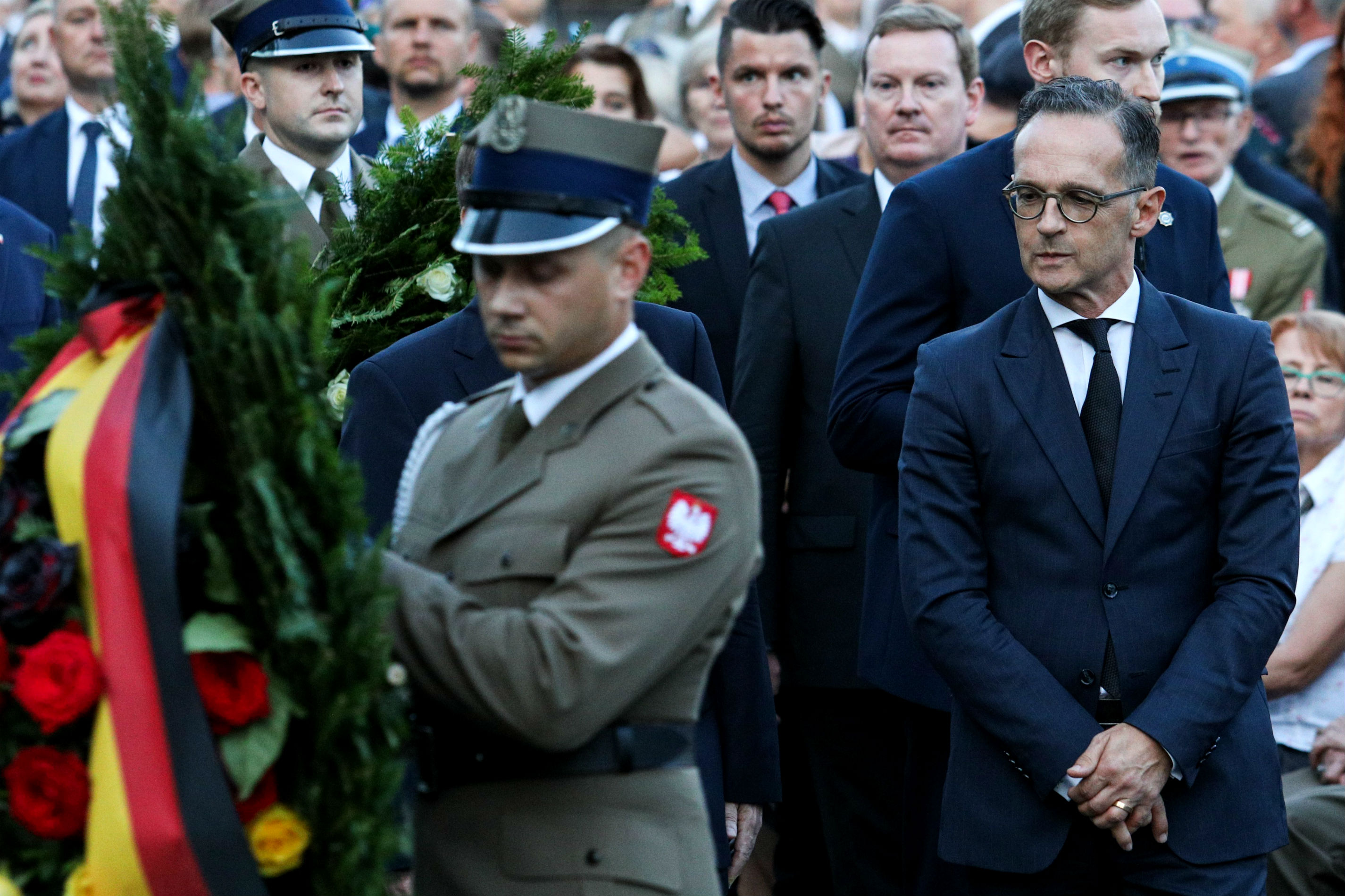Deputy Foreign Minister Arkadiusz Mularczyk began a two-day working visit to Berlin on Tuesday.
As he announced at a press conference, he intends to address difficult topics in Polish-German relations during meetings with German politicians. He also noted that Poland is very interested in cooperation with Germany, both politically and economically, and between societies. – It is not the fault of contemporary German society or contemporary Polish society that the difficult questions raised by the events of the Second World War have not been settled to this day. After the end of World War II, the world was divided by the iron curtain between the western world and the eastern world. Poland fell under Soviet occupation and was exploited for several decades, while Germany, in turn, received aid from the Marshall Plan and was in the Western world (…) This is the bipolar division of the world that largely prevented the installation of difficult issues arising from the Second World War between Poland and Germany, he said.
War casualties report
Arkadiusz Mularczyk pointed out that as a result of World War II, Poland suffered the greatest demographic, material and territorial losses of any country. As he recalled, due to the German occupation, Poland lost 5 million 200 thousand. citizens, and 2 million 100 thousand. Poles were deported to forced labor up to 200 thousand. German companies. Statistically, Polish forced laborers worked for two years and nine months, many of them died in Germany and received no compensation for their work, the deputy minister pointed out.
– 200,000 were deported for Germanization Polish children. They were snatched from their families the same way the Russians snatch Ukrainian children today.
He calculated that during the German occupation, works of art and cultural property were looted in Poland, as well as financial resources: savings, gold, securities, cash from Polish banks. – The vast majority of Polish national and cultural heritage has been removed – he announced.
Arkadiusz Mularczyk believed that all this still affects the Polish economy, society and demography.
He also recalled that on September 1, a report on Poland’s war losses from Germany was presented in Poland, and then the Sejm passed a resolution calling on the German state to take historical responsibility. , political, moral and economic consequences of the Second World War.
On October 3, he pointed out, the Polish Foreign Ministry sent a diplomatic note to the German government. – The Polish state, the Polish government, Polish society expect a dialogue between our countries and our nations on this difficult issue. There should not be such difficult issues that will be glossed over in Polish-German relations. True reconciliation and friendship can only be built on truth and settlement, the deputy head of the foreign ministry said.
“We cannot agree with the attitude of the German government”
– We cannot agree with the attitude of the German government, which says it feels morally responsible for the consequences of the Second World War, but does not feel politically and economically responsible. There is also no reason to claim that the case is closed from a legal point of view, since war crimes have no statute of limitations under international law. In addition, no international court has ever effectively closed this case – said Mularczyk.
– That is why we demand the opening of a dialogue on this issue, we also demand a commemoration worthy of the Polish victims in Berlin, more than 5 million 200 thousand. citizens – added the deputy head of the Ministry of Foreign Affairs.
Arkadiusz Mularczyk pointed out that “to date, the Polish government has not received a response to the diplomatic note” calling on Germany to pay Poland compensation for the losses suffered during the Second World War. – During the meetings, I will ask whether this answer will affect the rating of the Polish government or not. Of course, we will make our next actions depend on receiving this response – he noted, adding that Poland has also sent notes informing about the case to 50 other countries. – We want to discuss and close this matter with Germany on the basis of law and reconciliation – he said.
In this context, Mularczyk was asked what actions the Polish side will take if the German government sticks to its position and what it expects from the countries to which the notes were sent. We will wait a few more weeks. If there is no response, we will take international action, replied the deputy minister. – There are organizations of which we are partners, members, such as the UN, the European Union, the Council of Europe. There are also organizations such as the OECD and UNESCO – he said. As Mularczyk announced, “we will inform all international organizations of the unresolved issue.”
– We very much hope that the German government will take the decision to start talks with a partner, a friend, a company with which it is so close and to end this matter very quickly – underlined the deputy head of the Polish MFA.
“Today, Germany wants to be a country that sets an example in terms of respect for human rights, the rule of law and international law, so I think it is not in Germany’s interest that this case weighs on Germany’s image,” he added.
Will Germany start negotiations?
When asked if the Polish side would be ready to make concessions if Germany sat down at the negotiating table, he replied: “Of course, you have to believe in miracles and that this issue will be resolved by the dialogue and negotiations, this version of the report is a very conservative version, but of course we are ready to discuss because the note contains nine different points and we would like to find consensus and agreement on all these areas.”
The deputy head of the Foreign Ministry also announced that the report published on September 1 will be published in German in the coming weeks. – We hope that at the end of the year or the beginning of next year this report will be sent to the most important people in the German state – he announced. He added that German politicians had already received the report in English.
– We hope you will read the content of the report; We hope that this publication in German will slightly change the view of German society as to whether Germany really settled accounts with Poland regarding the effects of the Second World War – he said.
Arkadiusz Mularczyk was also asked about the painting by Wassily Kandinsky, which was to be sold by the Grisebach auction house in Berlin, despite protests from the Polish side that the painting was stolen from the Polish National Museum in 1984.
– This case, I think, is part of a bigger picture – because tens, if not hundreds of thousands of works of art, paintings, sculptures or books were exported from Poland, and unfortunately there there is no willingness on the part of Germany to report on this theft. This case, of course, looks a bit different, as the painting was stolen in the 1980s, but we are concerned about the situation where, according to the information we have, if after 30 years the painting is between private hands, even a stolen painting can be exchanged – said the deputy minister, adding that there is no similar law in Poland.
As he added, “we are surprised that such legislation exists in Germany.” “I think we should ask the German state to review this legislation,” he said.
PAP/dad







